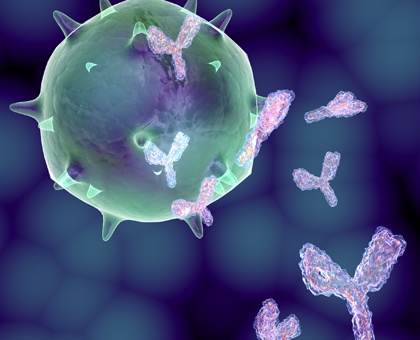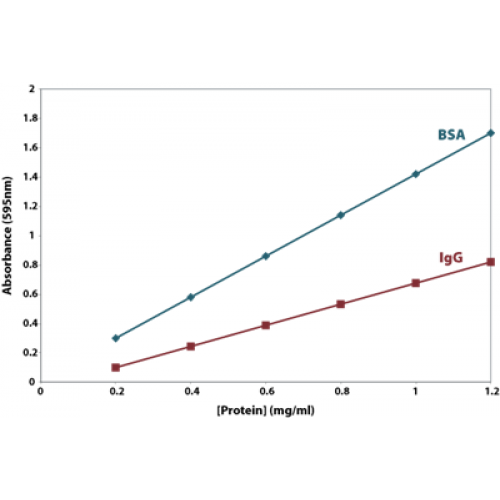 While both monoclonal and polyclonal antibodies can be used in a wide variety of applications including Western blot, enzyme-linked immunosorbent assays (ELISA), immunoprecipitation, immunofluorescence, immunocytochemistry, Biochip technology and in the diagnosis of disease, they each have their own advantages which make them useful for different applications. To determine which type of antibodies should be used for a particular application, let us try to understand the difference between the two.
While both monoclonal and polyclonal antibodies can be used in a wide variety of applications including Western blot, enzyme-linked immunosorbent assays (ELISA), immunoprecipitation, immunofluorescence, immunocytochemistry, Biochip technology and in the diagnosis of disease, they each have their own advantages which make them useful for different applications. To determine which type of antibodies should be used for a particular application, let us try to understand the difference between the two.
Monoclonal Antibodies
Monoclonal antibodies (mAbs) represent a population of antibodies that recognize a single epitope within an antigen. Since mAbs are produced from a single B cell in the spleen or lymph nodes of an immunized mouse, the resulting antibodies are all identical. In addition, they recognize the same epitope of a specific antigen.
However, while B cells can be used to harvest antibodies, these cells have a limited lifespan and will eventually stop producing the antibody in time. To overcome this limitation, a specific antibody-producing B cell is fused with a myeloma cell to create an immortalized B cell-myeloma hybridoma which can provide a constant supply of highly specific monoclonal antibody.
Monoclonal antibodies can be raised against many targets. Specific antibody characteristics (sensitivity requirements and cross reactivity levels) can be identified and monoclonal antibodies screened to identify any cell lines exhibiting the required characteristics.
Monoclonals can also be generated to cross react with a group of molecules. This can be quite useful in cases where there are multiple possible combinations of drugs to be tested in a patient.
Monoclonals are typically rat or mouse monoclonals, but they can also be generated from various species such as rabbit and goat.
Advantages of mAbs
- Immortal supply. Once a monoclonal antibody hybridoma is created, it can produce unlimited quantities of highly specific antibodies.
- High specificity. mAbs are ideal for use as primary antibody in an assay, or for detecting antigens in tissues.
- High reproducibility. They produce low background staining and lot-to-lot variation, and have low cross-reactivity. As such, they provide reproducible results and ensure efficiency in affinity purification.
Polyclonal Antibodies
Polyclonal antibodies (pAbs) represent a population of antibodies collected from multiple B cell clones that have been activated by the immune response of an immunized animal (goat, sheep, or rabbit). Unlike monoclonal antibodies, polyclonal antibodies recognize multiple epitopes on any one antigen, and the serum obtained contains a number of different antibodies of different affinity.
After being injected with a specific antigen to elicit a primary immune response, the animal is given a secondary and tertiary immunization to produce higher titers of antibody against the particular immunizing antigen. The serum containing the antibodies is collected and affinity purified to enrich for the antibodies raised against the antigen. This process ultimately produces high titer, high affinity polyclonal antibodies against the antigen of interest.
However, polyclonal antibodies cannot be collected for an indefinite amount of time. They also require multiple animals to be immunized with the same antigen. It is also not uncommon for animals immunized with the same antigen to develop differential immune responses which may, in turn, result in variability in polyclonal antibody production between batch preparations.
Advantages of pAbs
Most researchers prefer polyclonal antibodies for a number of reasons. These include the following:
- High affinity. Since the antibodies bind to more than one epitope, they can help amplify the signal from target protein with low expression level. This makes these antibodies ideal for immunoprecipitation and chromatin immunoprecipitation.
- Tolerant of minor changes. Polyclonals are less sensitive to antigen changes (slight denaturation, polymorphism, heterogeneity of glycosylation) than monoclonal antibodies.
- More robust detection. Multiple epitopes generally provide more robust detection.
In addition, most laboratories prefer polyclonal antibodies since they do not require any highly specialized training or advanced technology, and are relatively quick and inexpensive to produce.






